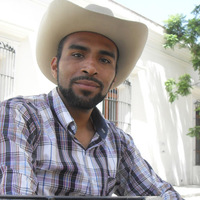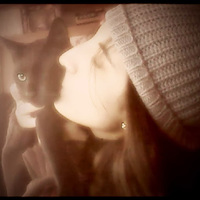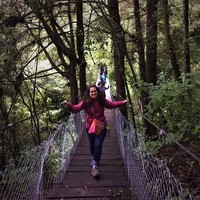
Katarzyna Grabska
I am originally from Poland, Warsaw, where I first pursued studies in international relations. I received BSc in International Relations from the London School of Economics and Political Science and an MA in International Affairs at the Johns Hopkins University, School of Advanced International Studies (Bologna and Washington DC). My research interests focus on inter-linkages between conflict, forced displacement, intersectional analysis (with specific attention to gender and generations) and rights.
I received my PhD (development studies/anthropology) from the Institute of Development Studies (IDS) at the University of Sussex, UK. For my Phd research, I carried out an ethnography of displacement and emplacement of a group of Nuer South Sudanese refugee women and men in Kakuma refugee camp in Kenya. Subsequently, I followed their 'return' and post-war 'home' and place-making projects in Western Upper Nile of South Sudan. My research focuses on conflict, displacement and social transformations, with specific attention to the changes in gender and generational relations. I am particularly interested in intersections of power, gender identities and gender/generational relations in forced displacement.
Work and research experience prior to my Phd are mainly in the humanitarian field related to issues of human rights, migration, refugees and post-conflict development in Egypt, Guinea, Ghana, Sudan, Cambodia and Vietnam. Before joining IDS, I worked as a researcher at the Forced Migration and Refugee Studies program at the American University in Cairo and was a coordinator and a researcher with the Development Research Centre on Migration, Globalization and Poverty. I carried out qualitative research on livelihoods and access to rights among South Sudanese refugees and asylum seekers in Cairo.
Since 2008, I have been affiliated as a Research Fellow with the Gender and Development Programme at the Graduate Institute of International and Development Studies (IHEID) in Geneva. I was involved in a research project on translation of feminists thoughts into gender expertises and practices.
During my post-doc research affiliation with the Swiss National Centre of Competence in Research (NCCR North-South), I investigated the contradictions and confusions related to the regional and national gendered politics and policies of migration and mobility in a comparative study in Ghana, Kyrgyzstan and Nepal.
I then was the lead researcher and coordinator of a Swiss Network for International Studies funded project that investigated the experiences and consequences of adolescent girls' migration in Ethiopia, Bangladesh and Sudan. My research was among Ethiopian and Eritrean adolescent girls' and young women migrants to Sudan. Since 2014, I am an associated researcher with CEDEJ (French Institute of Social Studies) Khartoum and teaching at the Ahfad University for Women (on gender, migration and development issues).
I then taught for two years at the Institute of Social Studies (Erasmus University in the Hague) where I led a project on creative practice (dance and music), mobilities and development. My part of the research focuses on women musicians in Sudan and social history of revolt.
Since January 2020, I am a research professor at the Peace Research Institute in Oslo where I lead a research project on art, artists, inspiration in the times of war and post-conflict (INSPIRE). The fieldwork takes places in Myanmar, Sudan and with exiled artists in Norway, France, Switzerland and the UK.
My theoretical interests are in anthropology of gender, feminist anthropology, anthropology of conflict, displacement and refugee studies, art-based research and co-creation of knowledge.
Supervisors: Prof. Ann Whitehead and Dr. Lyla Mehta
I received my PhD (development studies/anthropology) from the Institute of Development Studies (IDS) at the University of Sussex, UK. For my Phd research, I carried out an ethnography of displacement and emplacement of a group of Nuer South Sudanese refugee women and men in Kakuma refugee camp in Kenya. Subsequently, I followed their 'return' and post-war 'home' and place-making projects in Western Upper Nile of South Sudan. My research focuses on conflict, displacement and social transformations, with specific attention to the changes in gender and generational relations. I am particularly interested in intersections of power, gender identities and gender/generational relations in forced displacement.
Work and research experience prior to my Phd are mainly in the humanitarian field related to issues of human rights, migration, refugees and post-conflict development in Egypt, Guinea, Ghana, Sudan, Cambodia and Vietnam. Before joining IDS, I worked as a researcher at the Forced Migration and Refugee Studies program at the American University in Cairo and was a coordinator and a researcher with the Development Research Centre on Migration, Globalization and Poverty. I carried out qualitative research on livelihoods and access to rights among South Sudanese refugees and asylum seekers in Cairo.
Since 2008, I have been affiliated as a Research Fellow with the Gender and Development Programme at the Graduate Institute of International and Development Studies (IHEID) in Geneva. I was involved in a research project on translation of feminists thoughts into gender expertises and practices.
During my post-doc research affiliation with the Swiss National Centre of Competence in Research (NCCR North-South), I investigated the contradictions and confusions related to the regional and national gendered politics and policies of migration and mobility in a comparative study in Ghana, Kyrgyzstan and Nepal.
I then was the lead researcher and coordinator of a Swiss Network for International Studies funded project that investigated the experiences and consequences of adolescent girls' migration in Ethiopia, Bangladesh and Sudan. My research was among Ethiopian and Eritrean adolescent girls' and young women migrants to Sudan. Since 2014, I am an associated researcher with CEDEJ (French Institute of Social Studies) Khartoum and teaching at the Ahfad University for Women (on gender, migration and development issues).
I then taught for two years at the Institute of Social Studies (Erasmus University in the Hague) where I led a project on creative practice (dance and music), mobilities and development. My part of the research focuses on women musicians in Sudan and social history of revolt.
Since January 2020, I am a research professor at the Peace Research Institute in Oslo where I lead a research project on art, artists, inspiration in the times of war and post-conflict (INSPIRE). The fieldwork takes places in Myanmar, Sudan and with exiled artists in Norway, France, Switzerland and the UK.
My theoretical interests are in anthropology of gender, feminist anthropology, anthropology of conflict, displacement and refugee studies, art-based research and co-creation of knowledge.
Supervisors: Prof. Ann Whitehead and Dr. Lyla Mehta
less
Related Authors
Sabina Barone
University College London
Emmanuel Jesus Cruz Reyes
Universidad Autónoma de la Ciudad de México
Lucia Curbelo
FACULTAD DE HUMANIDADES -UDELAR
Laura Mihaela Negoita
Universidad Complutense de Madrid
Sonia Alvarez
Universidad de El Salvador
Tatiana Paz Lemus
Vanderbilt University
InterestsView All (33)








Uploads
Books by Katarzyna Grabska
During the civil wars in Southern Sudan (1983–2005) many of the displaced Sudanese Nuer women and men were in refugee camps in Kenya and Ethiopia. In the aftermath of the 2005 peace agreement they repatriated to post-war Southern Sudan: a place they barely remembered or knew was to become ‘home’. Yet, faced with finding long-lost relatives, settling in and confronting local expectations of ‘proper behaviour’, they often felt displaced again. This book follows the lives of a group of Nuer in Ler in the Western Upper Nile region, who left Sudan as a result of the violence and war, only returning years later, in the aftermath of repatriation. The narratives of those displaced and those who stayed behind reveal the complexity of social change that occurred and show how this has impacted on state formation and, in particular, on the transformation of gender and generational relations.
Critically examining the disjunctures in global and local policy frameworks and categories that determine the lives and status of displaced people, and providing in-depth case studies from Africa, the Middle East and Asia, this collection evaluates rights-based approaches that seek to award agency to displaced people and demonstrates how 'rights talk' can be 'rights practice' in forced migration research, policy and practice. Including contributions from leading scholars and activists in the field, the book analyses and attempts to bridge the divide between a range of displacement situations, including development 'oustees', refugees and internally displaced persons.
Papers by Katarzyna Grabska
During the civil wars in Southern Sudan (1983–2005) many of the displaced Sudanese Nuer women and men were in refugee camps in Kenya and Ethiopia. In the aftermath of the 2005 peace agreement they repatriated to post-war Southern Sudan: a place they barely remembered or knew was to become ‘home’. Yet, faced with finding long-lost relatives, settling in and confronting local expectations of ‘proper behaviour’, they often felt displaced again. This book follows the lives of a group of Nuer in Ler in the Western Upper Nile region, who left Sudan as a result of the violence and war, only returning years later, in the aftermath of repatriation. The narratives of those displaced and those who stayed behind reveal the complexity of social change that occurred and show how this has impacted on state formation and, in particular, on the transformation of gender and generational relations.
Critically examining the disjunctures in global and local policy frameworks and categories that determine the lives and status of displaced people, and providing in-depth case studies from Africa, the Middle East and Asia, this collection evaluates rights-based approaches that seek to award agency to displaced people and demonstrates how 'rights talk' can be 'rights practice' in forced migration research, policy and practice. Including contributions from leading scholars and activists in the field, the book analyses and attempts to bridge the divide between a range of displacement situations, including development 'oustees', refugees and internally displaced persons.
European makings of 'good' and 'bad' refugees: contestations of the right to have rights While the sense of crisis and emergency in Europe concerning the Syrian refugee crisis has wavered, the figure and presence of migrants and refugees keep playing a significant role in European politics and policies, public imagery and self-positioning. Scholars have pointed at the construction of hierarchies of 'deserving' people in need and differentiations between 'good' and 'bad' refugees (Mavelli and Wilson, 2017). Such rankings in the political, popular and public imaginary are often connected to gendered and religious status and particular ideas about agency and victimhood. While certain categories such as 'the persecuted Christian', 'mother and child' and refugees 'waiting in camps' are considered favourable, others are considered less favourable, for instance when refugees take matters into their own hands by crossing the Mediterranean. These perceptions may be at odds with or challenge existing (inter)national migratory legislation such as the Geneva Convention.
This panel aims to examine localized and contextualized representations of biopolitical hierarchies of the deserving and not deserving of 'the right to have rights' (De Gooyer et al., 2018). We are particularly interested in European political and social practices and articulations. The panel aims to interrogate the processes through which figures of the deserving and undeserving are constructed, politically legitimized and possibly translated into legislation. We welcome contributions from scholars working in the fields of migration and refugee studies, public, political and state anthropology, legal anthropology and on topics of media and public debate and right-wing populism.